
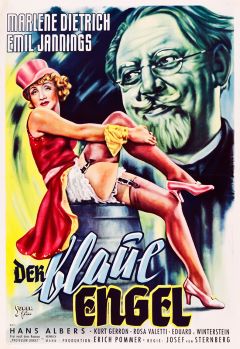
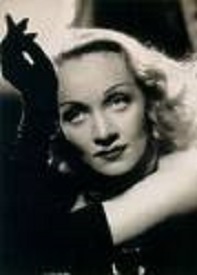
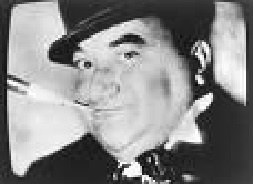

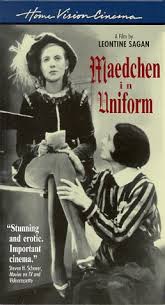

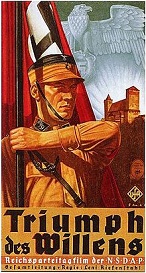
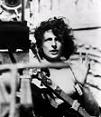



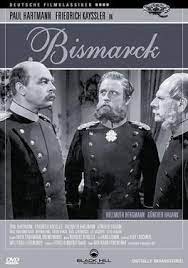
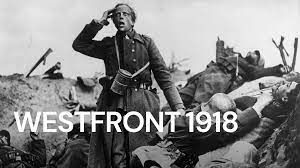














TLW's German Cinemascope™ (German Cinema Historyscope) |
By T.L. Winslow (TLW), the Historyscoper™ |
© Copyright by T.L. Winslow. All Rights Reserved. |
Original Pub. Date: Dec. 3, 2016. Last Update: Mar. 20, 2024. |

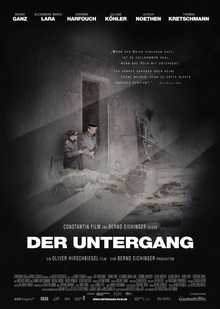
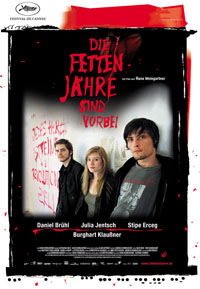
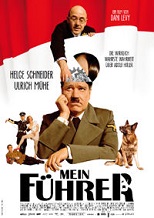
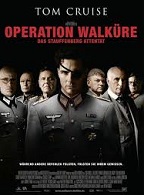
Westerners are not only known as history ignoramuses, but double dumbass history ignoramuses when it comes to German cinema history. Since I'm the one-and-only Historyscoper (tm), let me quickly bring you up to speed before you dive into my Master Historyscope.
In 1911 Babelsberg Studio is founded in Potsdam-Babelsberg (near Berlin), becoming the oldest large-scale film studio on Earth, and Europe's largest by modern times; its first production is "The Dance of the Dead" (1912); in 1920 it becomes Decla Bioscop; in 1921 it merges with Universum Film AG (UFA); in 1926 it builds Marlene Dietrich Halle for production of Fritz Lang's "Metropolis" (1927); in 1929 the Tonkreuz, the first German sound stage is built; in 1933-45 it cranks out 1K feature films, incl. hundreds dir. by Nazi propaganda chief Joseph Goebbels, incl. "Triumph of the Will" (1935) and "The Jew Suss" (1940).

On Mar. 4, 1922 Friedrich Wilhelm Murnau's Nosferatu: Eine Symphonie des Grauens (Nosferatu: A Symphony of Horror) (Prana Film) (Gr. "nosophoros" = plague carrier) debuts, filmed in Bremen, Bavaria, starring Max Schreck as Count Orlok, becoming the first film to feature vampires; too bad, they make the mistake of advertising it as "freely adapted from Bram Stoker's Dracula", pissing-off his widow Florence Balcombe Stoker (1858-1937), who tries to get all the prints destroyed, winning her copyright lawsuit in July 1925; luckily some prints survive and the first U.S. screenings take place on June 3, 1929 - so who's under the red light of doom next?

On Jan. 10, 1927 Fritz Lang's Metropolis debuts, attempting to show the technology-driven future, becoming the most expensive silent film to date (7M marks); written by Fritz Lang (1890-1976) and his actress wife Thea Gabriele von Harbou (1888-1954), who ends up joining the Nazi Party in 1932 before/after he is accused of being Jewish, and splits with him, ending up on the losing side in WWII.

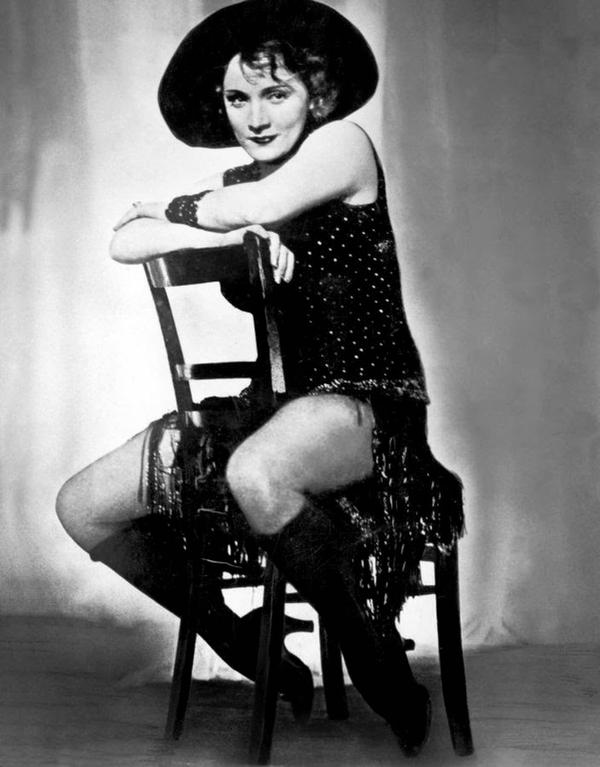



On Apr. 1, 1930 Josef von Sternberg's The Blue Angel (Der blaue Engel) debuts, the first feature-length German sound film, based on the 1905 Heinrich Mann novel "Professor Unrat" (Professor Filth), starring Emil Jennings as bourgeois middle aged Prof. Immanuel Rath, who is lured to his destruction by pretty young blonde bohemian Blue Angel Cabaret singer Lola Lola, ending up as a clown; also stars Hans Philipp August Albers (1891-1960) (#1 male movie star in Germany in 1930-45) as big-mouth strongman Mazeppa; obese Berlin-born German-Jewish actor Kurt Gerron (1897-1944), famous for singing "Mack the Knife" in Bertolt Brecht's "Threepenny Opera" plays magician Klepert, and Rosa Valette plays his wife Guste; makes a star of Marie Magdalene "Marlene" Dietrich (1901-92) as singer Lola Lola, who loves to straddle a chair on stage, and introduces her signature song Falling in Love Again (Can't Help It) by Friedrich Hollaender (1896-1976); English language version released simultaneously; the film causes Dietrich to be discovered by Hollywood, forming Marlene's Sewing Circle of lesbian lovers incl. Claudette Colbert, Lili Damita et al., and wearing "man drag" offscreen, causing a nat. vogue for women to wear slacks; also stars Hans Philipp August Albers (1891-1960) (#1 male movie star in Germany in 1930-45) as big-mouth strongman Mazeppa; too bad, after the war begins Gerron is captured by the Nazis in Amsterdam and sent to the Theresienstadt Ghetto in Czech., where he is forced to make the 1944 Nazi propaganda film The Fuhrer Gives a City to the Jews, after which he is sent to Auschwitz and murdered? (he said send me some Academy Awards, not send me to Auschwitz?); Dietrich's Austrian-born Jewish Svengali Josef (Jonas) (von) Sternberg (1894-1969) goes on to incl. a scene of Dietrich in man drag in each of their films, causing Vanity Fair to comment: "Sternberg traded his open style for fancy plan, chiefly upon the legs in silk, and buttocks in lace, of Dietrich, of whom he has made a paramount slut. By his own token, Sternberg is a man of meditation as well as a man of action: but instead of contemplating the navel of Buddha, his umbilical perseverance is fixed on the navel of Venus", after which his wife Risa Royce Sternberg files for divorce, blaming Dietrich for "alienating the affections of my husband"; after she loses him, Dietrich mutters to some cameramen who are lighting her improperly, "Where are you, Joe?"


On Apr. 21, 1930 Lewis Milestone's All Quiet on the Western Front (B&W) (Universal Pictures) debuts, written by Maxwell Anderson based on the 1929 novel by Osnabruck, Prussia-born flamboyant-living, Lancia convertible driver (Roman Catholic) Erich Maria Remarque (1898-1970) (later called "the King of Hollywood"), starring Lew Ayres as Paul Baumer, Louis Wolheim as Kat Katczinsky, John Wray as Himmelstoss, Arnold Lucy as Prof. Kantorek, and Slim Summerville as Tjaden; the final scene shows Paul reaching out to touch a butterfly before he is killed by a sniper; after she is replaced by Beryl Mercer as Paul's mother for making previewers laugh, ZaSu Pitts goes into B-comedy, defining the fretful, flustered, worrisome spinster, and often teaming with Thelma Todd; features 2K+ extras on battlefields set up on a 930-acre ranch in Irvine, Calif., and costs Universal Pictures $1.25M, but is a major hit, and Photoplay names it picture of the year; Variety tells the League of Nations to "buy up the master-print, reproduce it in every language, to be shown to every nation every year until the word 'war' is taken out of the dictionaries"; it pisses-off the Nazis so much that they ban it in Germany (until 1952); Remarque is forced to leave Germany, and is stripped of German citizenship in June 1938; it is rereleased in the U.S. in 1939 following the German invasion of Poland, right before which Remarque escapes the Gestapo, travels the backroads through France, sails on a Panamanian passport aboard the Queen Mary, and arrives in New York City as a lit. celeb, and predicts WWII, touting FDR as the world's only hope and becoming a conscientious objector.

On May 23, 1930 Georg Wilhelm Pabst's Westfront debuts, based on the 1929 novel "Vier von der Infanterie" by Ernst Johannsen about life in the WWI German trenches features an ensemble cast led by Fritz Kampers and Gustav Diessl; Pabst's first sound film, giving a much bleaker view than the U.S. film "All Quiet on the Western Front"; after the Nazis rise to power, propaganda minister Joseph Goebbels denounces it for "cowardly defeatism".

On May 11, 1931 Fritz Lang's B&W M - A City Searches for a Murderer (Eine Stadt sucht einen Mörder) (Nero-Film A.G.) (Paramount Pictures) (20th cent. Fox) debuts, Lang's first talkie (his favorite), making a star of Czech-born Jewish actor Peter Lorre (1904-64) as serial child murderer Peter Kurten "the Vampire of Dusseldorf", who is brought to rough justice by Berlin's criminal underworld; monocled German dir. Lang throws Lorre down a flight of stairs in the final scene to make him look more battered; Lorre moves to Hollywood in 1935, where he becomes typecast as a foreigner; watch trailer; watch movie.
On Nov. 9, 1931 Leo Mittler's The Concert (Das Konzert) (Paramount Pictures) debuts, a German comedy film based on Hermann Bahr's 1909 play, starring Olga Tschechowa as Maria Heink, Oskar Karlweis as Dr. Jura, and Ursula Grabley as Delfine.
On Nov. 17, 1931 G.W. Pabst's B&W Kameradschaft (Comradeship) (La Tragedie de la mine) (Nero-Film) debuts, based on the 1906 Courrieres mining disaster, a talkie about trapped German and French miners in the Saar forgetting their nat. feuds in order to survive; watch trailer; watch movie.

On Nov. 27, 1931 Leontine Sagan's B&W Madchen (Mädchen) in Uniform (Deutsche Film-Gemeinschaft) debuts, based on the play "Gestern und Heute" by Christa Winsloe is the first sympathetic onscreen portrayal of lesbians; watch movie.


On Mar. 24, 1932 Leni Riefenstahl's B&W The Blue Light (Das Blaue Licht) debuts, becoming the dir. debut of former dancer and Arnold Fanck "alpine film" actress Helene Bertha Amalie "Leni" Riefenstahl (1902-2003), about an Italian fairy tale, but Adolf Hitler likes it so much that he meets her in May and recruits her for Nazi films, and she goes on to become "Hitler's filmmaker" and "world's most famous female film director" - the Nazi dream can be beautiful for the winning side? Watch film.

On Dec. 17, 1932 Henry Koster's The Adventure of Thea Roland debuts, becoming the dir. debut of German-born Jew Henry Koster (Hermann Kosterlitz) (1905-88), who after his next film is forced by the Nazis to flee Germany, going on to become a leading dir. in Hollywood.

On Mar. 28, 1935 Leni Riefenstahl's Triumph of the Will (Triumph des Willens) debuts, an account of the 1934 Nazi Party rally in Nuremberg, which projects a dreamy white vision and stirs millions of Germans to go out and kill and be killed for the Fatherland and der Fuehrer; after making it, Leni is given preferential treatment by Hitler, subject only to his orders, even though she never joins officially the Nazi Party - any special reason other than that he's God? Watch movie.



On Sept. 24, 1940 Veit Harlan's B&W Jud Suss (Süss) (The Jew Suss) debuts, a Nazi anti-Jewish film backed by Joseph Goebbels based on German Jewish banker Joseph Suss Oppenheimer (1698-1738) and filmed in his hometown of Ludwigsburg in Baden-Wurttemberg 8 mi. N of Stuttgart, starring greasy, hooked-nose Austrian actor Ferdinand Marian (Haschkowetz) (1902-46) (forced to act in the movie by Goebbels after he finds out that his stepson is half-Jewish) as money and power-hungry "Court Jew" Suss, and Werner Krauss as a sinister rabbi "Ghetto Jew"; a typical fair and balanced Nazi treatment of their racial enemies, portraying them as creepy dirty mice who like to deflower lily-white Aryan girls and control the world economy; Harlan's blonde-blue Swedish 3rd wife Beata Margareta Kristina Soderbaum (Söderbaum) (1912-2001) ("the Ideal Aryan Woman") also stars, gaining the nickname "Water Corpse of the Reich" for her habit of committing suicide by drowning in this and other flicks; on Sept. 30 Heinrich Himmler orders all SS men and police to view it; Watch movie.

On Dec. 6, 1940 Wolfgang Liebeneiner's Bismarck (Tobis Film) debuts in Berlin, a historical film starring Paul Harmann as Otto von Bismarck, Friedrich Kayssler as Wilhelm I, Lil Dagover as Empress Eugenie, about the struggle for German unification and how the evil French, English and Jews try to stifle it, while Bismarck seeks an alliance with Russia to safeguard the Prussians on the E side, making the 1939 Molotov-Ribbentrop Pact seem wise; U.S. customs seizes the film for a tariff violation, and it isn't shown.

On Sept. 17, 1981 Wolfgang Petersen's Das Boot (Bavaria Film) (Westdeutscher Rundfunk) (SWR Fensehen) (Neue Constantin Film) debuts, based on the 1973 novel by Lothar-Guenther Buccheim (originally a German TV special), based on the life of U-96 Capt. Heinrich Lehmann-Willenbrock (1911-86) ; stars Jurgen Prochnow as the heroic but frustrated and doomed captain of German U-boat U-96 in WWII, told from the perspective of Lt. Werner (Herbert Groenemeyer); the best German-perspective WWII movie ever made?; does $84.9M box office on a 32M DM budget - not a Jew in sight, so they don't have to show their nasty anti-Semitic side?

On May 17, 2004 Hans Weingartner's The Edukators (Die fetten Jahre sind vorbei) debuts, starring Daniel Bruhl, Stipe Erceg, and Julia Jentsch as three young anti-capitalist activists in Berlin who educate upper-class bourgeoisie by rearranging the furniture in their houses while engaging in a love triangle.

On Sept. 8, 2004 Oliver Hirschbiegel's Downfall (Der Untergang) (Constantin Film) debuts, based on books by Hitler's secy. ("the best boss I ever had") Traudl Junge (1920-2002) et al., about the final days of Herr Hitler (played by Bruno Ganz) in his Berlin bunker; the best German-perspective WWII flick since "Das Boot" (1981), although it is controversially intimate and lifelike?

On Jan. 9, 2007 Dani Levy's My Fuehrer: The Really Truest Truth about Adolf Hitler (Mein Führer – Die wirklich wahrste Wahrheit über Adolf Hitler) (X Filme) is the first German movie to satirize Hitler, by a Swiss-born Jewish dir. who lives in Berlin and thinks he has a free pass?; Adolf Hitler (Helge Schneider) is too depressed to give his New Year's 1945 speech, so he calls in a Jewish acting coach.

On Dec. 25, 2008 Bryan Singer's Valkyrie (Studio Babelsberg) (United Artists) (Bad Hat Harry Productions) (Cruise/Wagner Productions)(MGM) (20th Cent. Fox) debuts, starring lookalike profile Tom Cruise as German Col. Claus von Stauffenburg, who unsuccessfully attempts to assassinate Herr Hitler on July 20, 1944 but at least gets close enough to make it exciting; features Kenneth Branagh as Maj. Gen. Henning von Tresckow, Bill Nighy as Gen. Friedrich Olbricht, Terence Stamp as Col. Gen. Ludwig Beck, Tom Wilkinson as Col. Gen. Friedrich Fromm, Carice van Houton as Stauffenberg's wife Nina, Matthias Freihof as Heinrich Himmler, Harvey Friedman as Joseph Goebbels, and David Bamber as Adolf Hitler; does $200M box office on a $75M budget.